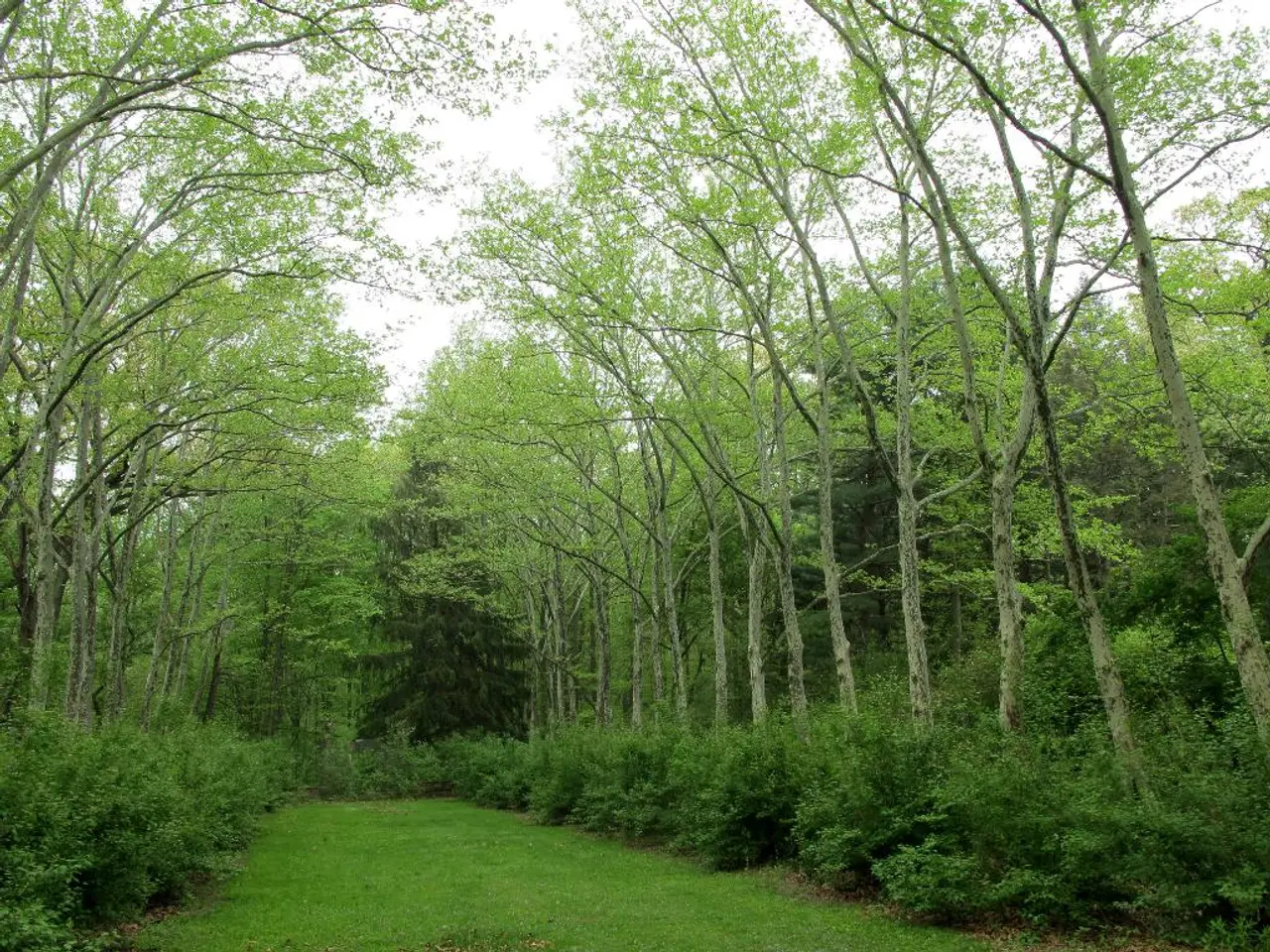Group from the Swabian Alb embarks on learning journey to Rhön, focusing on knowledge exchange and natural exploration
Biosphere Region Swabian Alb Delegation Visits UNESCO Biosphere Reserve Rhön
A delegation from the Biosphere Region Swabian Alb recently embarked on a two-day visit to the UNESCO Biosphere Reserve Rhön. The trip, aimed at sharing knowledge and enhancing cooperation, focused on advancing nature conservation and fostering sustainable development practices.
The journey began at the NABU house at the Red Moor, which served as the starting point and information center for the delegation. Ulrike Schade, head of the administrative office in Zella/Rhön, warmly welcomed the group on the second day. Nils Hinkel, a colleague of Ulrike Schade, who focuses on education and communication, was also present.
Torsten Raab, head of the Hessian administrative office of the Biosphere Reserve Rhön, welcomed the guests at the Wasserkuppe. The Wasserkuppe, a tourist highlight and hotspot of species diversity in the open countryside, offered a picturesque backdrop for the visit.
The tour was accompanied by an expert NABU moor guide, who led the group through the Hexenpfad, a part of the award-winning family hiking trail. Along the way, the delegation admired the beauty of the White Woodviolet (Cephalanthera damasonium), one of the many orchids found in the region.
The visit highlighted how extensive grazing helps maintain a species-rich cultural landscape. The subsequent tour through the Red Moor, a unique moor landscape with various animal and plant inhabitants, was a particular highlight for the guests.
The protective measures discussed during the tour contribute to the preservation of the Red Moor. The regional marketing of the "Biosphere Cattle" as a model for sustainable agriculture was also presented during the visit.
The Rhön, a cross-border UNESCO Biosphere Reserve, with three administrative offices cooperating in Hesse, Bavaria, and Thuringia, offered a valuable opportunity for the delegation to learn from a different approach within protected areas.
The group, which included MP Michael Donth, Thomas Keck (mayor of the city of Reutlingen), and Achim Nagel (head of the business office of Biosphere Region Swabian Alb), was presented with projects in the field of education for sustainable development, such as Biosphere schools and kindergartens.
Torsten Raab expressed his pleasure about the visit from the Swabian Alb, emphasizing the importance of regular exchanges among German Biosphere Reserves for strengthening networks and sharing successful approaches for the protection and development of model regions. The cooperation aims to strengthen economic and ecological value by learning from each other's approaches within protected areas, supporting sustainable tourism, education, and community involvement as pillars of biosphere reserve management.
[1] This cooperation aims to strengthen economic and ecological value by learning from each other's approaches within protected areas, supporting sustainable tourism, education, and community involvement as pillars of biosphere reserve management.
[2] The delegation also displayed interest in replicating the Rhön's successful environmental-science initiatives in their own lifestyle and travel sectors, thereby promoting sustainable practices.
[3] Moreover, the Swabian Alb delegation was inspired by the Rhön's methods in the field of lifestyle and travel, aiming to implement similar measures to foster environmental-science and sustainability in their region.





